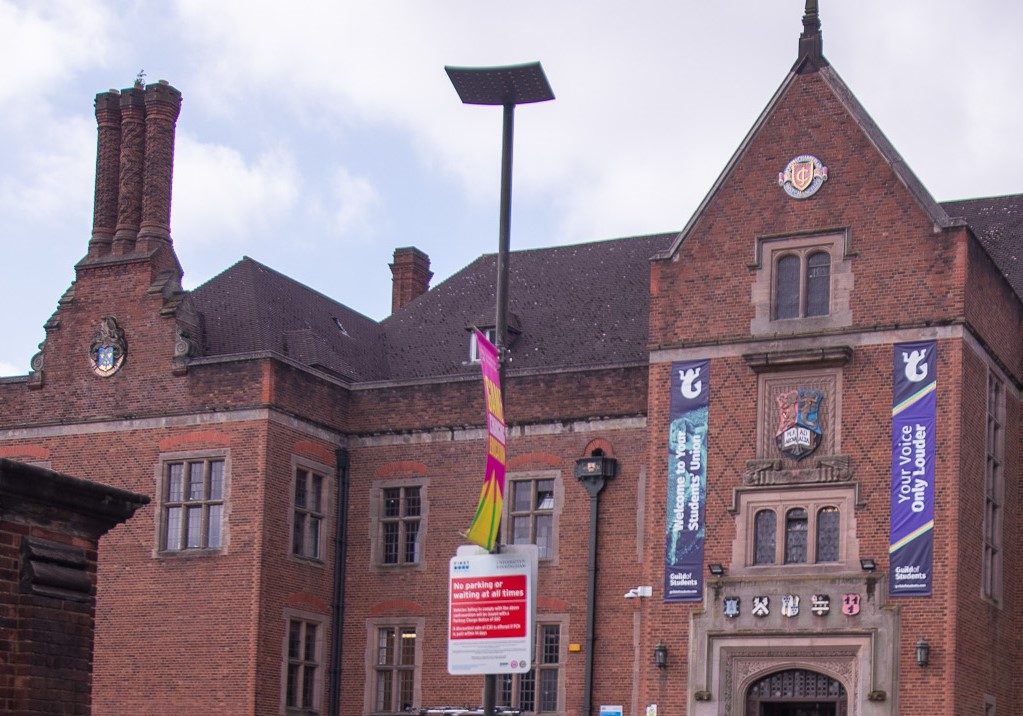Guild of students occupation – joint statement with Birmingham UCU
The UNISON and UCU branch committees note the recent occupation of the Guild of Students by the “Birmingham Students Assembly”. The occupation was a response to actions taken by the National Union of Students (NUS) related to a letter to it from over 70 elected student officers and almost 120 student groups, from more than 50 Higher Education Institutions. This letter asked for the NUS to do more to oppose the genocide in Gaza, specifically calling on it to:
- “Recognise the assault on Gaza as a “plausible genocide”
- Call for an immediate and permanent ceasefire
- Condemn Israeli apartheid and occupation in line with international law
- Rescind the NUS’s backing for the IHRA definition of antisemitism
- Lead a national ethical divestment campaign
- Defend students’ right to protest, including against Zionism
- Investigate Islamophobia and anti-Black racism within NUS structures
- Disclose any institutional ties to regimes complicit in apartheid and genocide”
(Source: https://www.thecanary.co/uk/news/2025/07/15/nus-gaza/)
This was alongside demands for a risk assessment and transparency review about the potential complicity of any elected official or student group in the current situation.
Rather than engage with the letter’s demands constructively, the NUS instead responded by demanding that all elected sabbatical officers who signed the letter “unsign” it, stating that it was antisemitic to sign such a letter due to the criticism of the IHRA definition of antisemitism.
The NUS stated that a refusal to “unsign” the letter will result in exclusion from all NUS events. Most notably this also includes the NUS provided training for new officers and the “Lead and Change” national conference that was due to take place at the Guild of Students here in Birmingham last week.
While the IHRA definition has been adopted by many organisations (including Universities) as the definition of antisemitism to be used in matters of complaint and conduct, it is not without controversy. The original author of the definition themselves has spoken out at the way in which it is being “weaponized” by many for political reasons. Without going in to the merits or otherwise of the definition here, we want to highlight that it is very much not the case that simply disagreeing with the use of the definition is in itself antisemitic. Whether or not it is the right framework for defining and combatting antisemitism is a contested subject, including within many Jewish organisations. No community is a monolith, and in a broad sense there are Israeli citizens opposing the actions of their government, as well as many anti-zionist Jewish activists worldwide who are often attacked and victimised for their beliefs.
Given this we feel it is deeply regrettable that many elected student officers, most of whom were elected on a platform of pressing Universities and Student unions to do more to oppose the genocide in Gaza, have been undemocratically excluded from the essential processes of the national union in this way. The decision being taken by some students to occupy the Guild of Students was in response to this draconian step.
It also comes against a backdrop of increasingly hostile steps being taken to repress pro-Palestinian activism by both government and individual organisations. There have been multiple reports of British police threatening and harassing activists for simply holding placards in support of Palestine and opposing genocide. Here at the University, and as reported by Birmingham UCU on the 3 July, the Friends of Palestine society was suspended by the Guild of Students for reasons linked to legitimate protest activity. While the suspension has now been lifted, it has only been done so with the imposition of restrictions on the group’s activity. While the British public are becoming increasingly distraught at the pictures and videos coming out of Gaza, state and broader institutional actors seem willing to take increasingly repressive steps to maintain their default level of support for the actions of the Israeli government.
Turning back to this specific issue, while our normal position on issues within the NUS is to avoid commenting on matters that are better addressed by its own members via its internal democratic processes, we felt it important to make an exception in this case due to the deeply undemocratic nature of the actions being taken.
We stand in solidarity with the actions being taken by students opposing the NUS’s actions. Now the occupation has ended, we call upon the NUS to urgently review its response to this matter and to reverse the actions it has taken to exclude these elected student officers.



